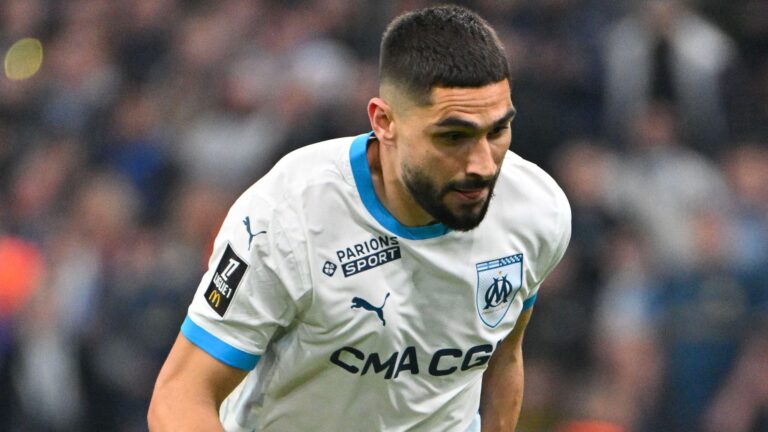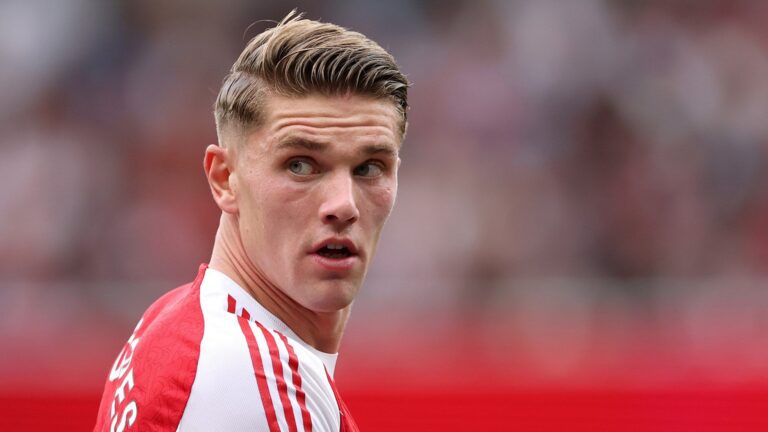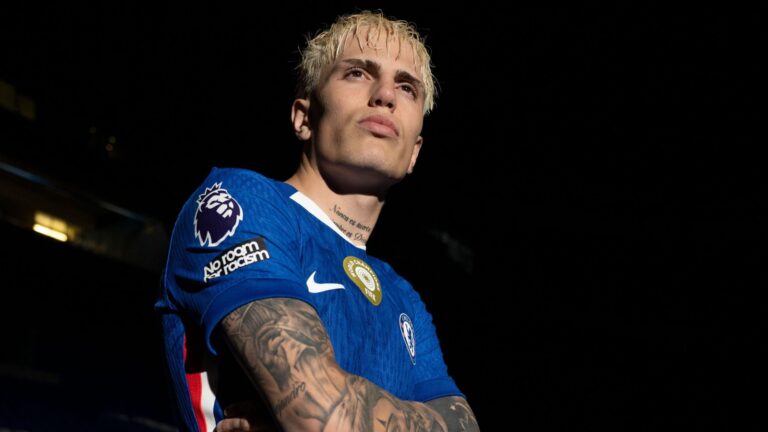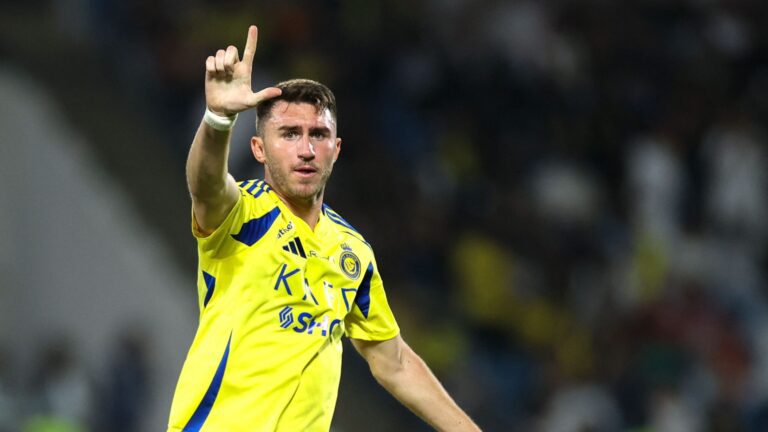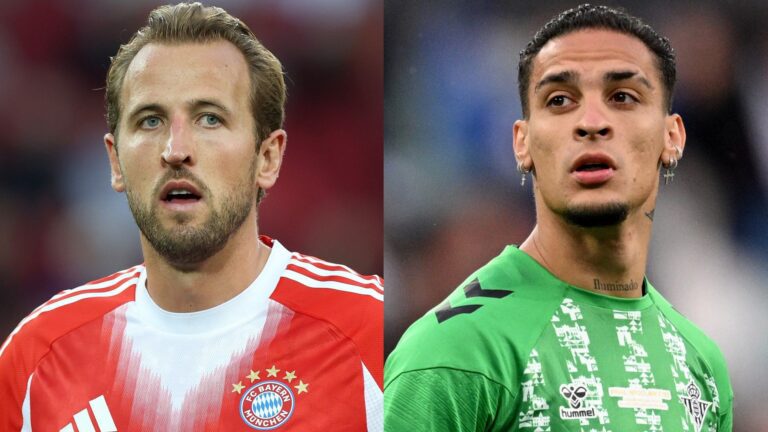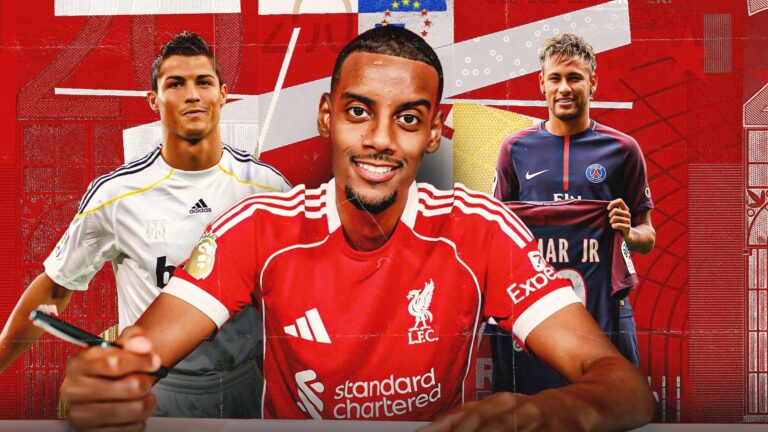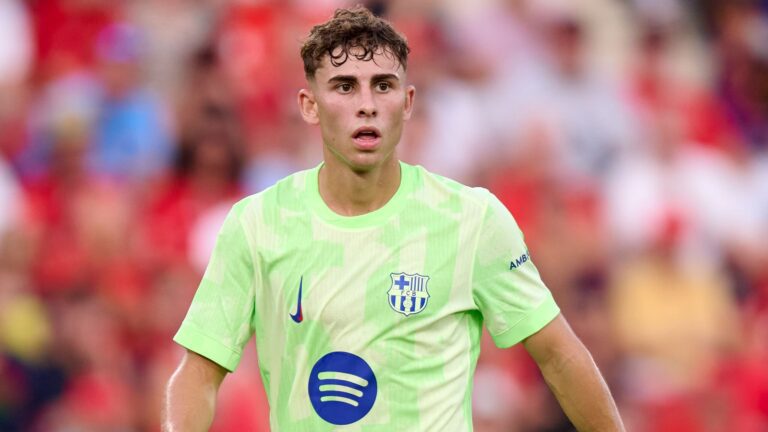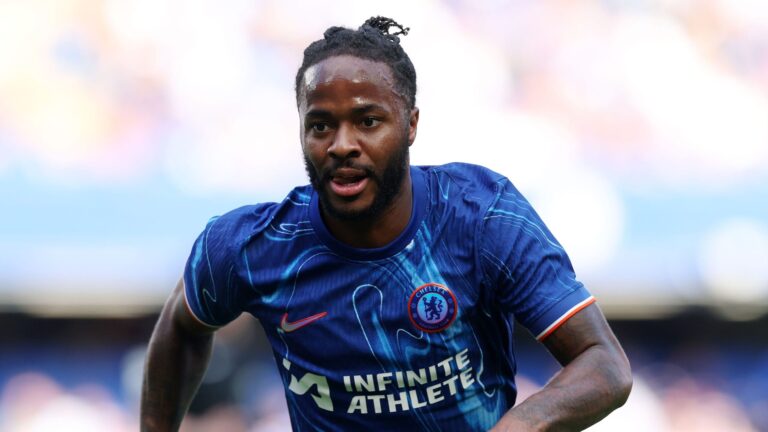Manchester United Firmly Rejects Kobbie Mainoo’s Loan Plea Amid Rising Tensions
Kobbie Mainoo, the talented Manchester United midfielder, has sparked discussions by seeking a temporary exit, as clubs monitor the situation closely. This development underscores the challenges young players face in securing regular playtime at top-tier clubs like United.
- Kobbie Mainoo seeks a temporary departure from Manchester United
- The club categorically denies his request and urges him to remain
- Multiple clubs are keeping a watchful eye on his circumstances



The Core Reasons for Mainoo’s Push for a Temporary Move
In a pivotal discussion held mid-week, the 19-year-old talent openly shared his commitment to Manchester United while highlighting how limited opportunities are impeding his growth. With the 2026 World Cup approaching, he argues that prolonged bench time could jeopardize his international aspirations, much like how emerging athletes often seek new environments to hone their skills, such as a promising rookie switching teams for more court action in basketball.
Club’s Unwavering Stance on Retaining Their Star Prospect
Manchester United’s leadership responded decisively, emphasizing that Mainoo is integral to their long-term vision. Recent updates show the team has started the season with a 1-0 loss to Arsenal and a 1-1 tie against Fulham, where Mainoo saw no action, reinforcing the club’s belief that his progress will thrive in-house. Officials are encouraging him to compete for minutes rather than depart, drawing parallels to how academy stars like Mason Greenwood were once advised to persevere through early setbacks.
Growing Frustrations from Limited Playing Time
Mainoo’s unease has been mounting over recent weeks. He has remained on the sidelines for United’s initial Premier League outings and only featured as a starter in their EFL Cup exit against a lower-division opponent, resulting in an unexpected penalty shootout defeat. As of the latest reports, United sits mid-table with just one point from two games, amplifying the pressure on young talents like Mainoo to break into the lineup consistently.
Interest from European Giants and Missed Opportunities
Various elite clubs have shown curiosity in acquiring Mainoo on a short-term basis. For instance, Bayern Munich initially probed the possibility but backed off without formal offers, while Bayer Leverkusen, led by a familiar coach, attempted to rekindle their connection but hit financial roadblocks. Additionally, Real Madrid‘s initial enthusiasm for a loan deal has waned, as recent transfer data indicates stricter budget constraints across La Liga clubs this window. Despite these inquiries, Mainoo is expected to stay put, with upcoming fixtures like the clash against Burnley potentially offering him a chance to shine and alter his path at Old Trafford.
The Rejection of Kobbie Mainoo’s Loan Request
Background on Kobbie Mainoo and the Loan Buzz
Kobbie Mainoo, the promising young midfielder for Manchester United, has been at the center of transfer speculation as the Premier League transfer deadline loomed. Reports surfaced that Mainoo, aged 18, expressed interest in a loan move to gain more first-team experience, possibly with clubs like a Championship side or a lower Premier League team. However, Manchester United’s management firmly rejected this request, opting to keep the academy graduate in their squad. This decision highlights the club’s strategy for nurturing youth prospects amid a busy transfer window filled with Premier League transfers and loan dealings.
Mainoo’s rise has been nothing short of meteoric. Since breaking into the first team, he’s showcased exceptional talent, drawing comparisons to club legends. Yet, with limited playing time due to competition from established stars like Casemiro and Bruno Fernandes, a loan could have provided the regular minutes he needs. Manchester United’s rejection underscores their commitment to long-term development over short-term loans, a common theme in modern football transfers.
Reasons Behind Manchester United’s Decision
Several factors likely influenced Manchester United’s choice to reject Kobbie Mainoo’s loan request. First, the club is investing heavily in youth integration, viewing Mainoo as a key part of their future core. With injuries and inconsistencies in the midfield, keeping him around offers valuable depth for the ongoing Premier League season.
Another angle is financial and strategic squad planning. Loaning out a promising player like Mainoo could risk him shining elsewhere, potentially attracting bids from rival clubs in future transfer windows. Reports suggest that manager Erik ten Hag and the board prioritized squad stability ahead of the transfer deadline, especially after recent signings. This approach aligns with trends in Premier League transfers, where top clubs often retain top talents to maintain competitiveness.
From a developmental standpoint, Manchester United might believe that their extensive training facilities and coaching staff provide better growth opportunities than a temporary move. Internal assessments could have indicated that Mainoo is already close to ready for more prominent roles, making a loan unnecessary.
Implications for Kobbie Mainoo’s Career Path
The rejection of Mainoo’s loan request could have both positive and challenging implications for his career. On one hand, staying at Old Trafford gives him the chance to learn from world-class players and compete at the highest level, which is invaluable for a young talent in Premier League football.
However, without regular game time, there’s a risk of stagnation. Football experts note that players like Mainoo often benefit from loans to build confidence and experience, as seen in cases where similar prospects have thrived after temporary moves. This situation could motivate Mainoo to push harder in training, potentially earning him more opportunities sooner.
Benefits of Manchester United’s Approach to Youth Development
Manchester United’s decision to hold onto Kobbie Mainoo exemplifies the benefits of a strong youth development system. Here are some key advantages:
- Enhanced Squad Depth: Keeping talents like Mainoo ensures the team has reliable options, reducing the need for emergency signings during the Premier League transfer period.
- Long-Term Value: By nurturing homegrown players, the club can avoid costly transfers and potentially sell them for high fees later, as with past stars like Marcus Rashford.
- Club Loyalty and Morale: Retaining academy products fosters a sense of belonging, which can boost team spirit and fan engagement.
This strategy not only saves on transfer fees but also aligns with Premier League regulations on homegrown quotas, giving United a competitive edge.
Practical Tips for Young Footballers in Similar Situations
For aspiring footballers facing loan dilemmas, here’s some practical advice based on common scenarios in Premier League transfers and youth football:
- Focus on Training: Use downtime to refine skills through targeted drills, such as improving ball control or tactical awareness, which can accelerate your path to the first team.
- Seek Mentorship: Connect with senior players or coaches for guidance, as Mainoo might be doing at Manchester United, to gain insights without leaving the club.
- Build Resilience: Rejections like loan denials can be setbacks, but viewing them as opportunities for growth helps in long-term career building.
- Monitor Transfer Windows: Stay informed about Premier League transfer rules and deadlines to time your requests effectively, ensuring they align with your development needs.
These tips, drawn from experiences of players who’ve navigated similar paths, emphasize patience and proactive self-improvement.
Case Studies of Similar Youth Prospects
Looking at other cases provides context for Manchester United’s handling of Kobbie Mainoo. For instance, Phil Foden at Manchester City was kept despite loan interest, leading to his emergence as a key player. Foden’s experience shows how staying put can result in rapid progression when managed well.
Another example is Mason Mount, who spent time on loan from Chelsea before becoming a Premier League star. While United might be avoiding that route with Mainoo, it illustrates the potential trade-offs. These case studies highlight that clubs like Manchester United often weigh immediate team needs against a player’s long-term potential in Premier League transfers, making decisions that prioritize stability.
By examining these scenarios, fans and young players can better understand the complexities involved in football transfers and youth management.


